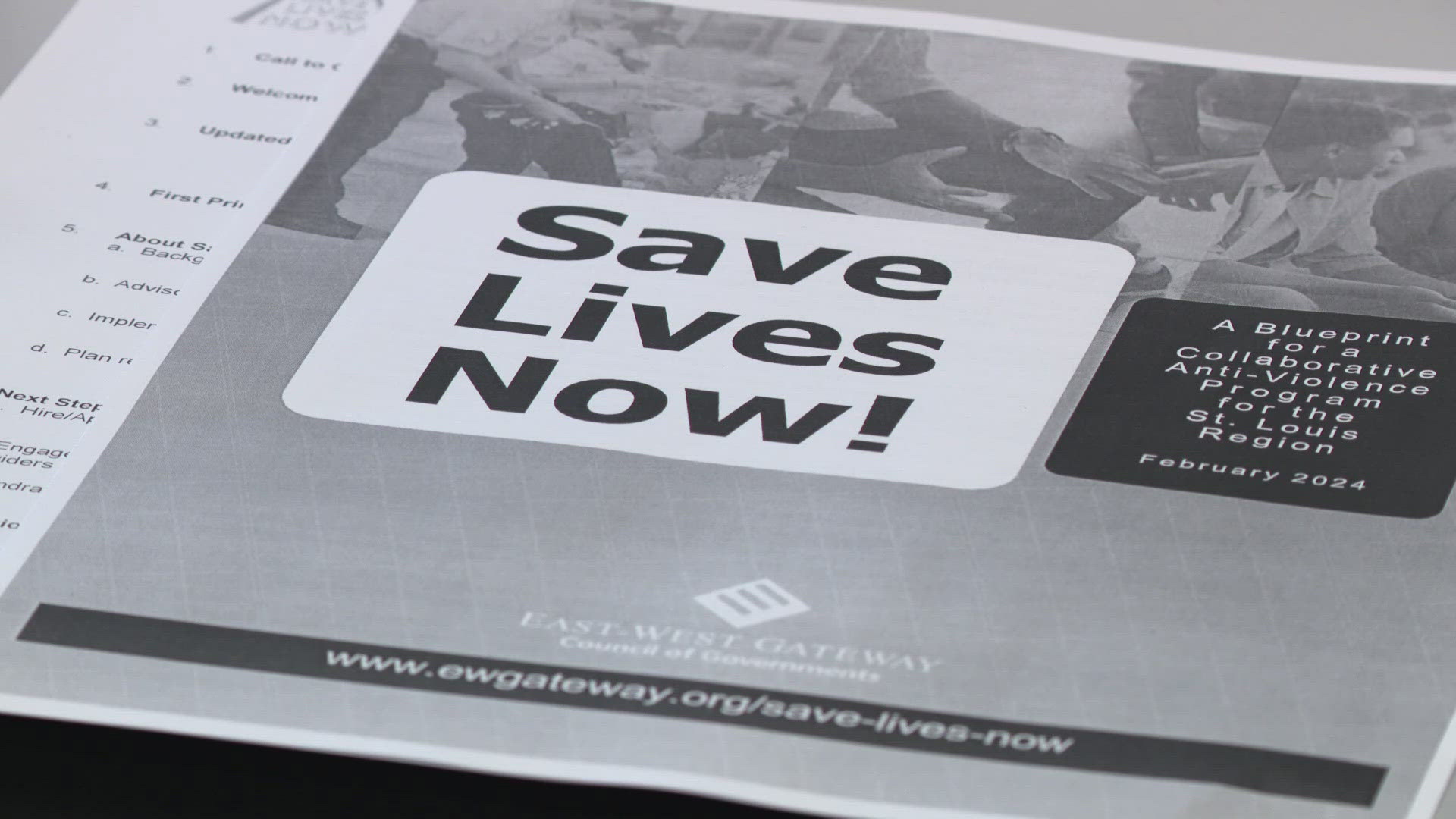FLORISSANT, Mo. — On Thursday afternoon at the St. Louis County Library Florissant Valley Branch, some of the region's key stake holders filled the room.
It was the first meeting for the new 'Save Lives Now' Advisory Council and it's the first time the St. Louis region is taking a regional approach to reduce homicides and shootings, aiming for a 20% reduction over three years.
This $1.5 million initiative, called 'Save Lives Now,' involves St. Clair County, St. Louis and St. Louis County. The East-West Gateway Council of Governments is its fiscal sponsor.
Thomas Abt, founding director of the Violence Reduction Center, said, "The key ingredient is collaboration and being able to work together."
Abt said the program will use three tactics to do this:
- Focused deterrence
- Cognitive behavioral therapy, also known as CBT
- Street outreach
The idea for this effort is to have targeted interventions and a coordinated, focused approach.
The goal is to have partners help with high-risk individuals and follow up offering CBT support services. CBT would assist with deep issues involving trauma.
Data discussed on Thursday showed about 95% of the crime in our region is in three areas: St. Louis, St. Louis County and St. Clair County. Data also finds that just 0.16% of the population causes approximately 30% of the violent crime in the region.
While the data is hard to determine motives, they learned the crimes fall into three broad areas: Personal disputes, drug-related disputes or gang-related.
While these efforts are already happening in the region, Abt said no one has used them in this integrated simultaneous way and in this type of regional approach.
"One of the things that is different about this initiative, it's highly focused and highly targeted on the people who are most at risk becoming involved in gun violence either as victims or perpetrators," Abt shared.
Abt explained this anti-violence plan is already in two cities, Knoxville and Boston.
So far this year, Boston has had three homicides.
While those cities saw results fairly quickly, time will tell what the St. Louis region will see and do.
"We need to give this some time to work, the strategies we are working on, we can deliver results in a year or two," Abt shared.
The advisory board is still forming and the implementation team is meeting weekly.
Here are next steps:
- The goal is to hire a director and fill the role this summer
- Engage in training and technical assistance providers
- Fundraising for the $1.5 million initiative, which will go to staff training and ongoing implementation costs
Abt said cities that don't see big changes are ones without a plan design or implementation and if momentum isn't maintained.
The hope is to have boots on the ground in the St. Louis region early next year.

